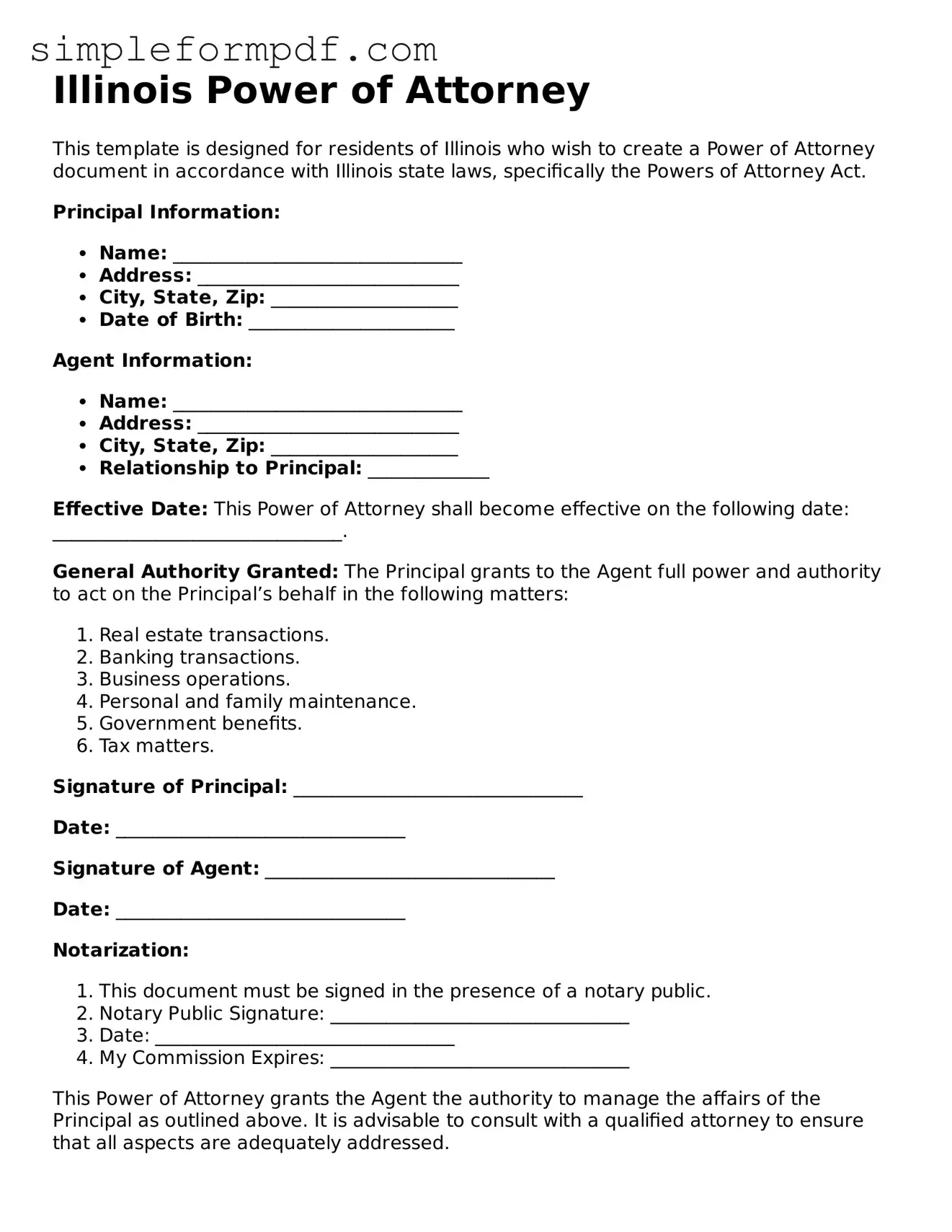Free Power of Attorney Form for the State of Illinois
The Illinois Power of Attorney form is a legal document that allows an individual to appoint someone else to make decisions on their behalf. This form can cover various aspects, including financial and healthcare decisions, ensuring that your wishes are honored even if you are unable to communicate them. To get started on filling out the form, click the button below.
Launch Editor

Free Power of Attorney Form for the State of Illinois
Launch Editor
Need instant form completion?
Finish Power of Attorney online in just a few minutes.
Launch Editor
or
Download PDF
